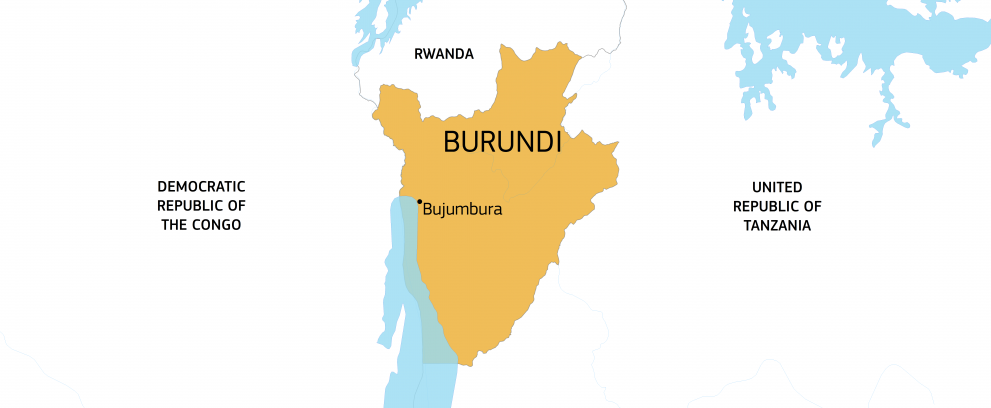Introduction
Over 260,000 Burundian refugees remain displaced in neighbouring countries, with most of them having fled Burundi after contested elections and violence in 2015. At the same time, the country has around 75,000 people internally displaced, mainly due to natural hazards such as flooding and landslides.
Since its independence in 1962, Burundi has faced periods of instability and conflict. The EU continues to provide support to Burundian refugees in their host countries and returnees who voluntarily return home.
What are the needs?
Burundian refugees are mainly hosted in Tanzania, Rwanda, the Democratic Republic of the Congo (DRC), and Uganda. Most of them rely entirely on international assistance to cover their basic needs, such as food, health, water, sanitation, hygiene, shelter, and education.
Many refugees live in camps where capacities and resources are stretched to the limit. The main needs remain access to basic services and food (rations are often not at 100% of the required calorie intake), health, nutrition, education, and protection of vulnerable people.
Since 2017, more than 230,000 Burundian refugees have returned to their country. Returnees need support to reintegrate into their new or original communities. They often face challenges as returnee farmers may have lost their lands in the meantime.
At the same time, it has become more challenging to get the resources required to cover the refugees’ needs.

How are we helping?
The EU continues to monitor the humanitarian situation in Burundi and the refugee situation in the neighbouring countries. In 2024, the EU has allocated €6 million in humanitarian funding to assist Burundian refugees in neighbouring countries and those who voluntarily returned home.
Depending on the country of asylum, refugees receive life-saving in-kind and/or cash-based food assistance. Cash-based assistance allows refugees to acquire essential items they consider a priority for their household. Additional nutritional support is given to pregnant and breastfeeding mothers, children under 5 years of age, chronically ill people and hospital patients.
EU humanitarian support enables the registration of Burundian refugees in camps and settlements in the region or upon arrival in Burundi. This is often a precondition for receiving assistance, both for refugees and returnees.
The EU supports protection assistance given to particularly vulnerable groups. These may include children, women, single parents, survivors of sexual violence, the elderly, and disabled people who are at risk of marginalisation and unable to access help services. In addition to supporting victims, protection actions also include measures to reduce the risks of violence and abuse at refugee camps.
Having spent years outside their home communities, rebuilding their life back in Burundi is a challenge for returnees and the receiving communities. EU funding supports returnees with the promotion of community dialogue to identify humanitarian needs and provide solutions together with the receiving communities.
In addition, returnees are helped to benefit from basic services, such as by acquiring birth certificates that, in turn, allow them to access basic social services in their home country.
Burundi is prone to natural hazards such as floods and landslides. The EU supports disaster preparedness in the country by enhancing the response capacity of first-line actors: the Burundian Red Cross and the communities themselves.
Last updated: 13/03/2024
Facts & figures
Over 260,000 Burundian refugees in neighbouring countries, including:
- 50,000 in the DRC
- 48,000 in Rwanda
- 40,000 in Uganda
- 112,000 in Tanzania
Over 230,000 Burundian refugees returned to their home country since 2017
EU humanitarian funding:
€6 million in 2024 for Burundian refugees and returnees
Over €100 million since 2015 to assist Burundian refugees and Burundians

